مجموعه آموزشی جو فراست راهنمای خانواده، قسمت ۲
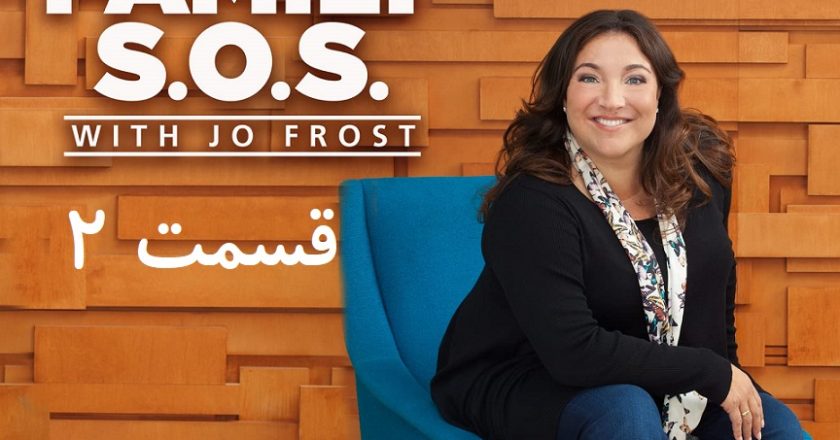
مجموعه آموزشی جو فراست راهنمای خانواده، قسمت ۲
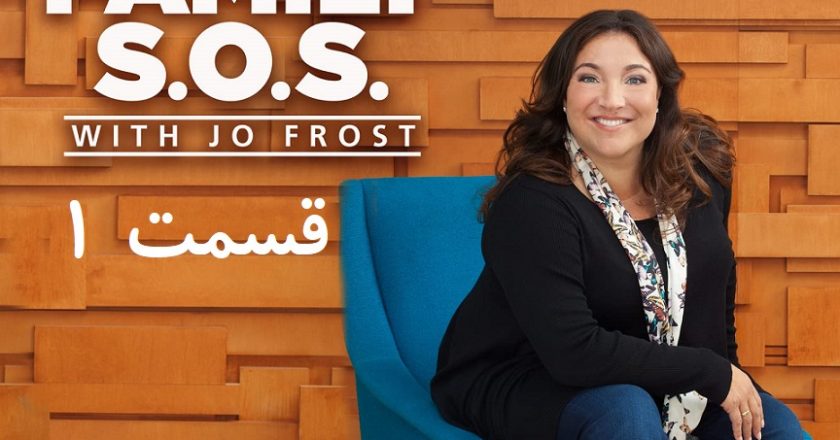
مجموعه آموزشی جو فراست راهنمای خانواده، قسمت ۱
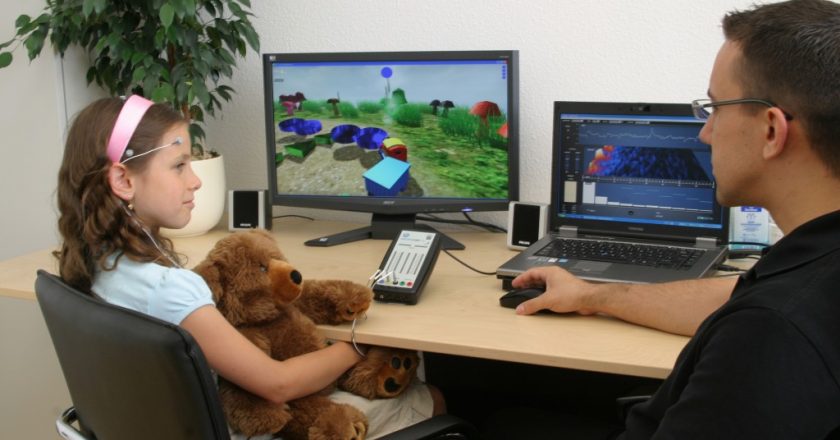
در مقاله پیش رو تاثیر نوروفیدبک در اتیسم مورد توجه قرار گرفته است. برای شروع لازم است که توضیح مختصری در مورد فناوری نوروفیدبک ارائه شود.
نوروفیدبک به معنی آموزش دادن مغز توسط خود مغز است. در حقیقت نوروفیدبک یک فناوری پیچیده کامپیوتری است که افراد به واسطه آن یاد میگیرند به صورت داوطلبانه امواج مغزی خود را کنترل کنند که در نتیجه آن فعالیتها و کارکردهای مغز به شیوه مطلوب تنظیم شوند.
در نوروفیدبک، سنسورهایی که به آن الکترود گفته میشود بر روی نقاط مشخصی از سر قرار میگیرند. این سنسورها، فعالیت امواج مغزی را ثبت کرده و اطلاعات به رایانهای داده میشود. رایانه این اطلاعات را به نمایشگرهایی شبیه بازی تبدیل میکند که میتوانند شنیداری، دیداری یا هر دو باشند. در نتیجه مراجع پخش یک فیلم یا انجام یک بازی کامپیوتری را بدون استفاده از دست و تنها با امواج مغزی خود انجام میدهد. افراد با مشاهدهی بازخوردهای دیداری یا شنیداری، با دیدن روند پیشرفت یا توقف بازی و همچنین با از دست دادن امتیاز و یا تغییراتی که دراندازه صفحه نمایش و یا صدا ایجاد میشود، از شرایط مطلوب یا نامطلوب امواج مغزی خود آگاه میشوند و یاد می گیرند که عملکرد امواج مغزی خود را بهبود بخشند. تنها راه موفقیت در چنین بازیهایی این است که کودکان الگوهای امواج مغزی خود را کنترل و بهبود بخشند.
نوروفیدبک برای شماری از اختلالات نظیر میگرن، صرع، افسردگی، اضطراب، آسیبهای مغزی و اختلال کمتوجهی-بیشفعالی (ADHD) استفاده شدهاست و اثرات مطلوبی نیز داشته است. نتایج استفاده از نوروفیدبک برای افراد دارای ADHD حاکی از بهبود توجه، تکانشگری، بیش فعالی و حتی افزایش هوش است، که حتی با قطع درمانهای دیگر، نظیر دارودرمانی نیز علائم بازگشت مجدد نداشتهاند.
این موفقیت پایه و اساس ظهور استفاده از نوروفیدبک برای کودکان دارای اتیسم بود. در افراد دارای اتیسم نیز مطالعات متعددی صورت گرفتهاست، در این مطالعات تلاش کردهاند از این روش جدید به عنوان یک درمان چندوجهی برای کودکان دارای اتیسم استفاده کنند. برخی از این مطالعات نشان دادهاند که استفاده از نوروفیدبک در افراد دارای اتیسم میتواند طیف وسیعی از فرآیندهای شناختی را پس از آموزش خودتنظیمی بهبود ببخشد. این مطالعات همچنین نشان دادند که افراد دارای اتیسم پس از مداخله با نوروفیدبک بهبود معناداری در تعاملات اجتماعی، تفکر، ارتباطات کلامی، سطح توجه، بهبود در عملکردهای اجرایی و شناختی نظیر انعطاف پذیری فکری از خود نشان دادند. این یافتهها شواهدی ارائه میدهند که نشان میدهد نوروفیدبک ممکن است به عنوان یک روش مداخله کمکی برای کودکان دارای اتیسم در نظر گرفته شود.
نکته حائز اهمیت این است که با وجود مطالعاتی که نشان دهنده تاثیر نوروفیدبک در اتیسم است، همچنان از نوروفیدبک نمیتوان به عنوان یک روش اصلی برای مداخله کودکان دارای اتیسم بهره برد چرا که شواهد متناقضی از اثربخشی این روش برای مداخله این کودکان مشاهده شدهاست. در نتیجه رویکردهای رفتاری نظیر تحلیل رفتار کاربردی (ABA) همچنان به عنوان خط اول مداخله برای کودکان دارای اتیسم مورد استفاده قرار میگیرد و بیشترین شواهد را در مداخله این دسته از کودکان شامل میشود.
منبع: +
ترجمه و خلاصه: حانیه صیادی


زنجیره آموزش استفاده از توالت برای کودکان دارای اتیسم که در ادامه آمده است میتواند به آموزش توالت رفتن به کودک شما یاری رساند. این فعالیت ها در مورد کودکان دارای اتیسم دارای اهمیت بیشتری است.
علاوه بر زنجیره آموزش استفاده از توالت برای کودکان دارای اتیسم، خواندن مطلب چطور کودک دارای اتیسم را آمادهی شروع آموزش توالت کنم؟ برای شما مفید خواهد بود.

چند بازی ساده اما مفید برای کودکان دارای اتیسم که به شما و کودک شما از چند جهت از جمله ارتباط یاری رساند.

سعی کنید به کمک چسباندن سر ها به هم همراه کودک یک بادکنک را در مسیر حمل کرده و داخل سبد بیندازید.

داخل ظرفی اب و کف درست کنید و با نی درون ان فوت کنید تا ضمن تولید صدا حباب روی ظرف تشکیل شود و با کودک حباب هارا بترکانید.

یک تکه مشمای حباب دار روی پیشانی خود بچسبانید و کودک حباب های مشما را فشار دهد تا بترکد.
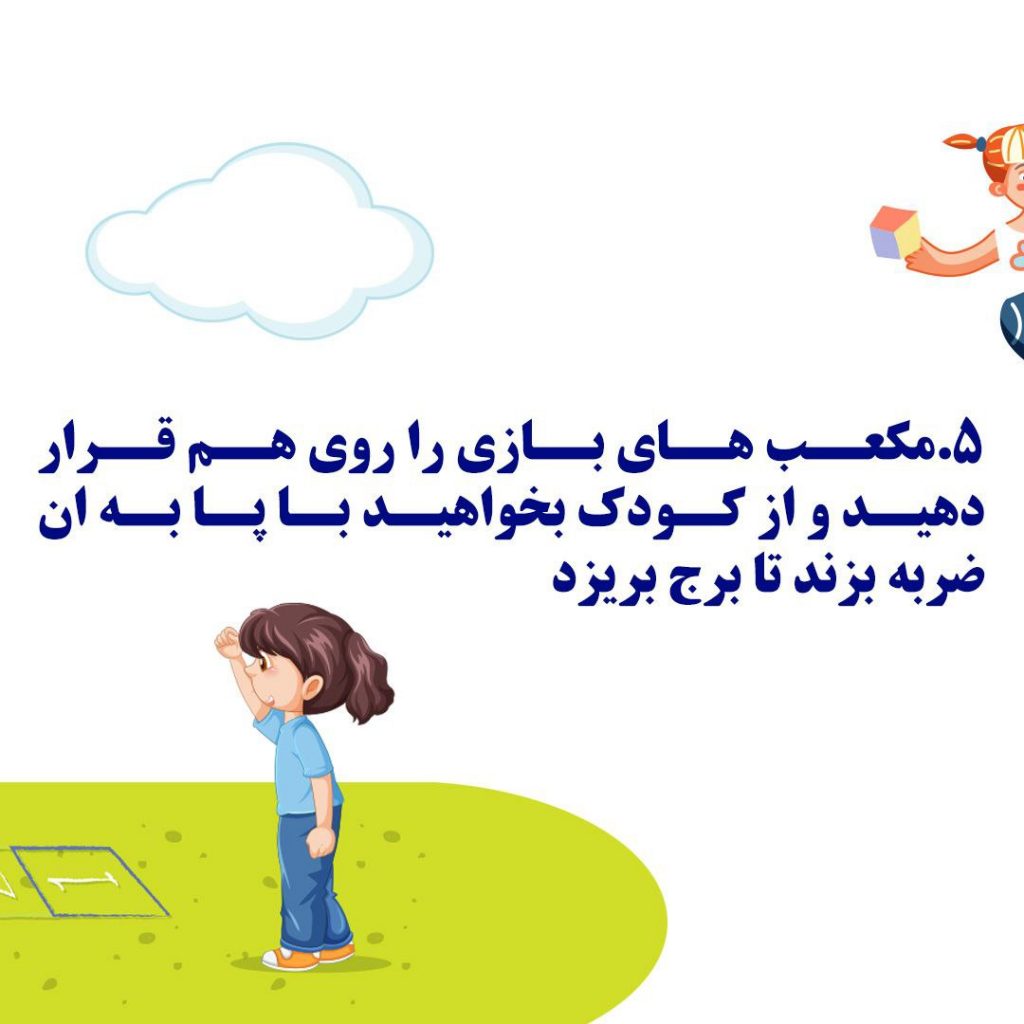
همراه کودک حبوبات را توسط قاشق از ظرفی به ظرف دیگر بریزید.

مکعبهای بازی را روی هم قرار دهید و از کودک بخواهید با پا به ان ضربه بزند تا برج بریزد.

یک مهره را داخل اسلایم یا خمیر بازی قرار دهید و از کودک بخواهید مهره را از خمیر خارج کند.
چند بازی دیگر را هم در ادامه بخوانید.
– ترانه پهلوان
– سید رسول رحمتی
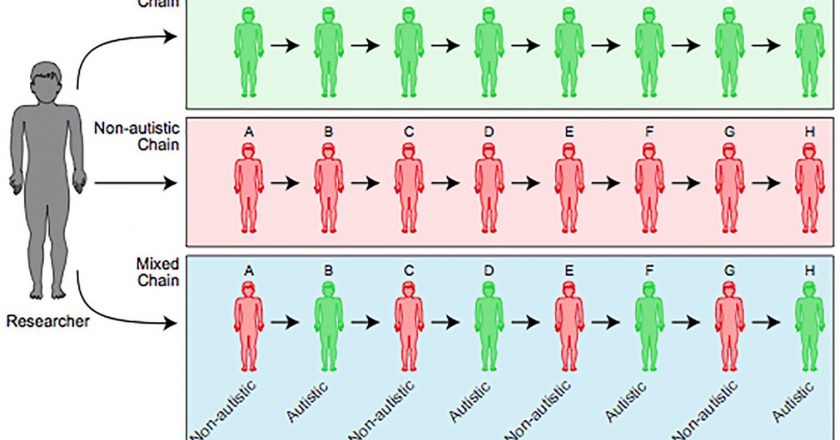
نحوه ارتباط میان افراد دارای اتیسم و انتقال اطلاعات بین افراد دارای اتیسم با سایر افراد دارای اتیسم در پژوهشی که اخیرا منتشر شده است مورد بررسی قرار گرفته است.
یکی از مؤلفههای اساسی اختلال اتیسم نقص ارتباطات اجتماعی میباشد، ممکن است که انتظار داشته باشیم که انتقال اطلاعات بین افراد دارای اتیسم باهم خیلی ضعیف تر از افراد دارای اتیسم با جمعیت عادی باشد اما هماهنگی عصبی دو نفر موجب تسهیل ارتباطشان میشود.
پس بنابراین ممکن است که انتقال اطلاعات بین یک فرد دارای اتیسم با فرد دیگر دارای اتیسم موفق تر از یک فرد دارای اتیسم و یک فرد فاقد اتیسم باشد، در مطالعات اخیر نیز نشان داده شد که افراد دارای اتیسم تعامل با سایر افراد دارای اتیسم را به افراد عادی را ترجیح میدهند و وابستگی اجتماعی نزدیکی را با آنها تجربه می کنند، به این دلیل که افراد دارای اتیسم بیشتر با اختلال اتیسم آشنا هستند، در تشخیص منظور افراد دارای اتیسم نسبت به افراد بدون اتیسم بهتر هستند. در گزارشی دیگر مشخص شد که افراد دارای اتیسم هنگام تعامل با سایر افراد دارای اتیسم، کلیشههای رفتاری کمتری را نشان می دهند.
محقق در این مطالعه ۷۲ داوطلب بزرگسال که در محدوده سنی ۳۵ سال حاضر بودند را به ۹ گروه ۸ نفره تقسیم کرد که سه گروه آن شامل افراد بدون اتیسم، سه گروه شامل افراد دارای اتیسم و سه گروه دیگر به صورت مختلط شامل ۴ نفر دارای اتیسم و ۴ نفر بدون اتیسم بودند.
آزمونگر داستانی سورئال را که توانایی پیش بینی آن دشوار بود را برای نفر اول حاضر در اتاق میخواند و سپس اتاق را ترک میکرد و نفر بعد وارد میشد، نفر اول برای نفر دوم داستان را میخواند و به همین ترتیب تا نفر هشتم پیش میرفتند و نفر هشتم داستان را بلند بازگو میکرد. محقق احساس ارتباط شرکتکنندگان با یکدیگر را با استفاده از مقیاسی شامل سهولت، لذت، موفقیت، دوستی و ناهنجاری (امتیاز منفی)، سنجید. علاوه بر آن تعداد جزئیاتی که هر فرد به فرد بعدی انتقال می داد را اندازه گرفت.
در این پژوهش درباره نحوه ارتباط میان افراد دارای اتیسم مشخص شد که کیفیت ارتباط در بین افراد عادی با عادی همانند کیفیت ارتباط افراد دارای اتیسم با افراد دارای اتیسم است؛ اما کیفیت ارتباط در گروههای مختلط که افراد دارای اتیسم و بدون اتیسم باید باهم ارتباط میگرفتند، به طور معناداری ضعیفتر از گروه های شامل افراد همسان بود. نتیجه دیگری که می شود از این پژوهش گرفت این است که تعامل افراد دارای اتیسم با همدیگر، کیفیت ارتباطی بیشتری نسبت به تعامل آن ها با افراد بدون اتیسم دارد.
منبع: +
ترجمه و خلاصه از سید رسول رحمتی

عکاسی و نگاه کردن به جهان از دریچه دوربین یک سرگرمی جذاب است که میتواند به افراد دارای اتیسم کمک کند تا دیدگاههای خلاقانه خود را پرورش دهند، همچنین به دلیل اینکه ممکن است این افراد در ارتباط کلامی دچار چالش باشند پس استفاده از دوربین میتواند راه دیگری برای برقراری ارتباط باشد.
📷 عکاسی کردن و ارائه شفاهی و توضیح عکسها و صحبت کردن در جمع مهارتی است که این رشته هنری به افراد میبخشد و تمرین آن به کودکان و نوجوانان دارای اتیسم اجازه میدهد تا با مخاطبان همسن خود ارتباط اجتماعی برقرار کنند و مستقیما با آنها صحبت کنند بنابراین از انزوا خارج میشوند و به آنها تریبونی داده میشود تا دیگران به آن گوش کنند.
📷 عکاسی استقلال را تشویق میکند. هنر عکاسی بر رابطه بین عکاس و دوربین او متکی است، عکس گرفتن به طور مستقل یک رفتار پذیرفته اجتماعی است.
📷 دیدگاههای خلاقانه و منحصر به فردِ هنرجو ارزشمند و توانمند میشود. عکاسی به عنوان یک هنر: استفاده از یک ابزار (دوربین) برای به تصویر کشیدن چیزی منحصر به فرد است. افراد دارای اتیسم به دلیل دید متفاوت و خاصی که دارند میتوانند در این رشته شگفتی بیافرینند.
📷 عکاسی میتواند راهی عالی برای آموزش پذیرش نظرات مختلف به فرد باشد یا به عبارت دیگر باعث انعطاف پذیری بیشتر می شود. یک معلم عکاسی به نام جنیفر سالیوان از هنرجوهای دارای اتیسم خود میخواهد تا از چیزی که آن را زیبا میدانند عکس بگیرند و هرکس با عکس خاصی برمی گردد.
📷 بحث در مورد انتخابهای آنها می تواند راهی عالی برای کشف نحوه تفکر متفاوت هر فرد باشد. حتی ممکن است دو نفر با عکسهای مشابه برگردند که باعث بحث و صحبت در مورد علایق مشترک آنها می شود.
📷 عکسها می توانند برای بسیاری از افراد دارای اتیسم به عنوان یک افتخار بزرگ عمل کنند. میتوانید عکسی که فرزندتان گرفته در خانه آویزان کنید تا به او نشان دهید که چقدر خوب کار کرده است.
حتی می توانید از عکسها روی یخچال، کنار تخت یا در کیف پول خود، چاپ عکس روی ماگ و جاکلیدی و… استفاده کنید.
📷 عکاسی از مناظر و طبیعت و حیات وحش میتواند تاثیر آرامش بخش بر فرد داشته باشد.
برای شروع عکاسی حتما نیاز به دوربین حرفه ای نیست. فرزند شما حتی با دوربین گوشی موبایل هم می تواند تصاویر و قابهای زیبایی خلق کند.
– نسیم عابدی
اگر علاقهمند به موضوع عکاسی و اتیسم هستید خواندن این مطلب در مورد جو جیمز، عکاس حرفهای دارای اتیسم نیز خالی از لطف نیست.
همچنین در تهران اتیسم دورههای عکاسی ویژه افراد دارای اتیسم برگزار میشود. اگر علاقهمند به کسب اطلاعات بیشتر و ثبت نام فرزند خود در این دورهها هستید به این صفحه مراجعه کنید.


خیراندیش محترم
جناب آقای مندز آل کاظم
با سلام و احترام
بارش کرامت جنابعالی، به خانواده مددجویان کمبرخوردار مرکز اتیسم تخصیص یافت. امیدوارم مرضی حق تعالی قرار گیرد.
همراهان عزیز مرکز تهران اتیسم طی سالهای اخیر افرادی بودهاند که در قالب کمک هزینه درمان به کودکان نیازمند، اهدای بستههای آموزشی یا وسایل کمکآموزشی، اهدای قرض الحسنه برای گسترش فضاهای درمانی و علمی- پژوهشی و… همت گماشتند. ضمن تقدیر و تشکر از این خیرین، در صورتی که تمایل به هرگونه مساعدتی دارید، به صفحه کمکهای مردمی مراجعه کنید.

در مطلب پیش رو ۴ نکته برای مدیریت کجخلقی در کودکان دارای اتیسم ارائه شده است. در مطلب پیشین مرتبط با همین مطلب، درباره موضوع کجخلقی و فروپاشی در اتیسم، تعاریف و تفاوتهای این دو خواندید. اگر آن مطلب را نخواندهاید توصیه میکنیم قبل از مطالعه این مطالب به آن مقاله مراجعه کنید.
برای مدیریت کجخلقی در اتیسم توجه و اجرای نکات زیر بسیار ضروری است.
۱- با درگیری کودک خود همدلانه برخورد کنید.
۲- کودک در حال جیغ زدن خود را به طور فیزیکی به مقصد بعدی خود به عنوان مثال حمام ببرید تا به او کمک کنید تا در آنجا آرام شود. کودکان با این فکر که ممکن است «نه» خود را به «بله» تغییر دهند، فریاد و اعتراض خود را تشدید میکنند. اگر او را از محل شی مورد نظر وی دور سازید (مثلا کودک در حال بازی با اسباببازیهایش است) کودک شما سریعتر آرام می شود.
۳- اگر کودک شما از کنترل خارج شدهاست یا پرخاشگر شدهاست (ضربه زدن، گاز گرفتن، خراشیدن یا نیشگون گرفتن)، کودک خود را در دامان خود ولی به دور از خود نگه دارید تا به آرامش کودک کمک کنید. گرفتن کودک ظرفی امن برای او فراهم میکند تا بتوانید خشم کودک خود را درون آن ظرف بگذارید. فرزند شما میآموزد که میتواند بسیار عصبانی باشد ولی شما به عنوان هدف خشم او به او حمله نکنید، انتقاد یا سرزنش نکنید. به فرزندتان بگویید وقتی دیگر کجخلقی نکند، او را رها خواهید کرد. لحظهای که ماهیچههایش شل میشوند و کودک آرام میگیرد، او را رها کنید و از او تمجید کنید که توانسته خودش را آرام کند.
۴- برای فرزندتان سخنرانی نکنید. کودکان از اینکه به آنها گفته شود چه کار کنند متنفرند. در عوض، پس از عصبانیت، به آرامی با فرزندتان در مورد آنچه میخواست و احساس میکرد صحبت کنید. با هم راههای جایگزینی را پیدا کنید که کودک میتواند بدون فروپاشی به آنچه میخواهد برسد. همیشه فرزندتان را در جایی که هست بپذیرید. همه ما در یک منحنی یادگیری هستیم. هیچ کس کامل نیست. همه ما خواهان یک چیز هستیم – تایید، تایید و پذیرفته شدن عیوب-.
ترجمه از حانیه صیادی

شما به احتمال زیاد در مورد کج خلقی و فروپاشی در اتیسم مطالبی خواندهاید. یا آنها در در کودک دارای اتیسم خود تجربه کرده اید. اگرچه ممکن است فروپاشی حسی در اتیسم و کجخلقی شبیه به هم به نظر برسند، اما کجخلقی و فروپاشی حسی اساساً متفاوت هستند.
به عنوان والدین، ما معمولاً میتوانیم تشخیص دهیم که چه زمانی کودکمان عصبانی یا کجخلق میشود. معمولاً شنیدن کلمه “نه” باعث تحریک آنها شده و ناگهان تبدیل به یک موجودی با صورت قرمز و چشمهای وحشی می شوند که نشان میدهد از وقوع چنین شرایطی عصبانی شدهاند. اما مورد دیگری نیز وجود دارد که میتواند آنها را وادار به انجام چنین عملی کند، و آن یک فروپاشی حسی است. فروپاشیها یا بحرانها معمولاً از یک منبع کمتر مستقیم میآیند. اما چگونه میتوان بین این دو تمایز گذاشت؟
دکتر فران والفیش، رواندرمانگر خانواده و روابط میگوید: «برای والدین و بسیاری از متخصصان بسیار دشوار است که بین فروپاشی حسی و کجخلقی تفاوت قائل شوند».
کجخلقی به یک خواسته یا نیاز مربوط می شود. به عنوان مثال اگر کودک شما احساس میکند که نیاز دارد ۵ دقیقه بیشتر بازی کند، اما زمان حمام او فرا رسیدهاست، احتمالاً کجخلق یا عصبانی میشود و سعی میکند کار خود را ادامه دهد. اما فروپاشی حسی اغلب واکنشی به یک موقعیت است. مثلا اگر در یک فروشگاه شلوغ هستید و کودک شما بدون دلیل یا به صورت غیر منتظره کنترل احساسات خودش رو از دست دهد این احتمالا یک فروپاشی حسی است.
به گفته دکتر والفیش، سه راه اصلی برای تشخیص تمایز بین کجخلقی و فروپاشی حسی وجود دارد که عبارتند از:
چه شما با یک عصبانیت مواجه شوید یا یک بحران، داشتن برنامهای برای مدیریت آن برای والدین نکته کلیدی است. به رسمیت شناختن احساسات کودکان مهم ترین چیز است. با کجخلقی، شما همیشه میخواهید در به انجام رساندن خواسته خود قاطع باشید. به این ترتیب، کودکان در نهایت یاد میگیرند که کجخلقی راه مؤثری برای رسیدن به آنچه میخواهند نیست.
فروپاشیها اغلب به مراقبت ملایمتری نیاز دارند. از آنجایی که بچهها کنترلی بر بحران ندارند، از آنها بخواهیم که نفس عمیق بکشند تا زمانی که آرام شوند، یا آنها را به فضای امنی انتقال دهیم.
در این مطلب درباره کج خلقی و فروپاشی در اتیسم خواندید، در مطالب آینده ۴ نکته برای مدیریت کج خلقی فراخواهید گرفت.
ترجمه از حانیه صیادی